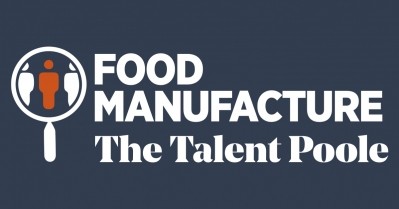The Talent Poole
Attracting and growing our future leaders

Jacinta George, managing director of RSSL, is extremely passionate about wanting to grow our next generation of talent. Here, she shares her views and experiences on how we can accomplish that.
Turning managers into leaders
It is an exciting moment for any employee when they receive their first promotion to a management role – it is often a recognition of an individual’s capability in their current role or of their potential as a people manager.
That said, there are distinct differences between being a manager (of people or a function) and becoming a true leader. This distinction is something George recognises, especially for those being promoted to more senior roles in RSSL.
“We are a vibrant organisation and it’s changing all the time. We have a lot of great managers and what I find myself asking for, is leadership,” she said. “I catch people when they get to a certain level – what we call a ‘group leader’ – and, although they are expected to manage their team, we also want them to be leading into the future and leading out of the status quo.
“When you have strong leadership, it’s marvellous. It’s not about just one person being a leader – it’s everyone being the leader within themselves. What I enjoy, at an early career stage, is unleashing the leadership from within.”
Bringing on new talent
Food Manufacture has frequently reported on the critical problem facing the food sector in attracting and bringing on new talent.
The food industry needs to find ways to compete against other sectors if we are going to actively encourage the next generation of leaders to join the industry. This means actively providing opportunities and demonstrating possible career pathways that young people want to buy into.
This is where George is really passionate: “I love to see the growth in those early in their careers. We’re about to see off our most recent tranche of interns and the transformation that happens from them coming in, fresh from university, is just amazing.
“If that’s what can happen in one year, imagine the potential for their future! We also have apprentices and I think every one of our degree-level apprentices has gained a distinction. So, I feel we nurture them well though a very hard environment of having to study part-time while working.”
Creating opportunities
Growing talent, whether via internships, graduate schemes or through apprenticeships does need careful management. An organisation needs to provide the opportunities to enable people to gain experience. That said, it doesn’t all need to be driven by the business. Given the right support, future leaders will actively seek opportunities to develop themselves.
George agreed: “I love when people put themselves forward, whether that’s within their department for a project, or for a community activity or perhaps leading a sustainability initiative. These all provide opportunities to demonstrate their leadership skills, so I am keen to encourage people to step up and put themselves forward.”
RSSL is in a good position to provide broad experience across the business for its talent, as George explained: “Because of our growth, we’ve been looking to actively move people across the organisation. Last year 22% of our population were promoted or moved onto a lateral assignment.
“We actively encourage people, when they are ready to be promoted, to look for experience in another department. We think this is often more beneficial when you experience a new environment and leadership style.”
Of course, not all food businesses are large enough or have the scope of opportunities that RSSL can offer, but it is still often possible to expose up-and-coming talent to new experiences by involving them in projects or, sometimes, even activities outside of the business.
The courage to challenge
Aspiring leaders need to develop an independence of thought and a mindset of being prepared to challenge the current ways of doing things. For some, this is a natural behaviour while, for others, this inner confidence needs to be encouraged through an empowering and supportive climate. Whatever their personality, it still requires courage, especially if expected to challenge well-established paradigms.
George is keen to encourage an environment where leaders can positively challenge without fear of criticism: “I want leaders who will spot if something isn’t right. I want them to catch hold of a problem and take it to a place where there is a newer, better solution.
“For me, there are no ‘sacred cows’, so I want leaders to have the courage of their convictions to put their head above the parapet and try something different. When things don’t work out, it’s a case of ‘fail fast, reflect and carry on’.”
Solutions not problems
Whilst George encourages leaders to constantly spot things that aren’t working or which could work better, she recognised the need for this to be positive and constructive: “It’s easy to say ‘this isn’t working’ or to just complain. It’s another matter to think about what then needs to happen to fix it. It takes courage and energy to channel this into a considered solution. I heard a great line once which I can’t take the credit for – ‘don’t be a complainer, be a mainstream solution provider’. This sums it up for me.”
Taking development seriously
A broad study of leadership behaviours conducted in the 1990s by a leading occupational psychologist, highlighted a link between those who demonstrated strong personal development behaviours and excellence in leadership. George takes her own personal development seriously but also demonstrates the same commitment with others in the business.
“Everybody will have in their goals a personal development goal and we offer a lot of support through learning and development including people management training which we run constantly.”
Beyond the formal training, George also encourages people to have a development mindset: “I like to meet with folks to chat about their development – a couple of years ago I held a hundred development discussions which were really enriching. From these, you find out whether people are taking their development seriously and, at the same time, I’m signalling that I take their development seriously.
“I recognise this is a big commitment, but I see it as an investment. You may have just had a conversation with someone and, the next day, an opportunity may present itself which you can direct them towards – it’s like a form of matchmaking.”
Flying geese
During our wide-ranging discussion we touched on the analogy of supporting and encouraging young birds to fly from their nest. This, in turn, led to George describe another ornithological analogy: “When geese fly, they fly in formation and they have a target. At RSSL we are not just about doing random analysis. Like geese, we are very focused in what we do – it’s about understanding a client’s broader issues and helping them find solutions.”
George continued the analogy: “…and geese support each other in flight – when one goose gets tired, another comes forward to take the lead. Similarly, in our leadership, we care for and support each other.”
Jacinta George is the managing director for Reading Scientific Services Ltd (RSSL) a scientific research organisation serving the food and healthcare sectors.
Prior to joining RSSL, she served as the director for ingredient research & wellbeing at Mondelez International and has held various operational and commercial roles within Kraft Foods and Cadbury in the UK, Ireland and US.
Jacinta studied chemistry and then business, and is a Fellow of the Institute of Food Science & Technology, and the Royal Society of Chemistry (RSC) where she was President of the RSC’s Industry and Technology Division Council.
Until 2022, Jacinta was a non-executive director of the Local Enterprise Partnership (LEP) for Thames Valley Berkshire representing Life Sciences and Healthcare, and chairing the LEP’s Business Environment Programme.
In other news, the number of new apprenticeships is falling since the introduction of UK's levy system.
















